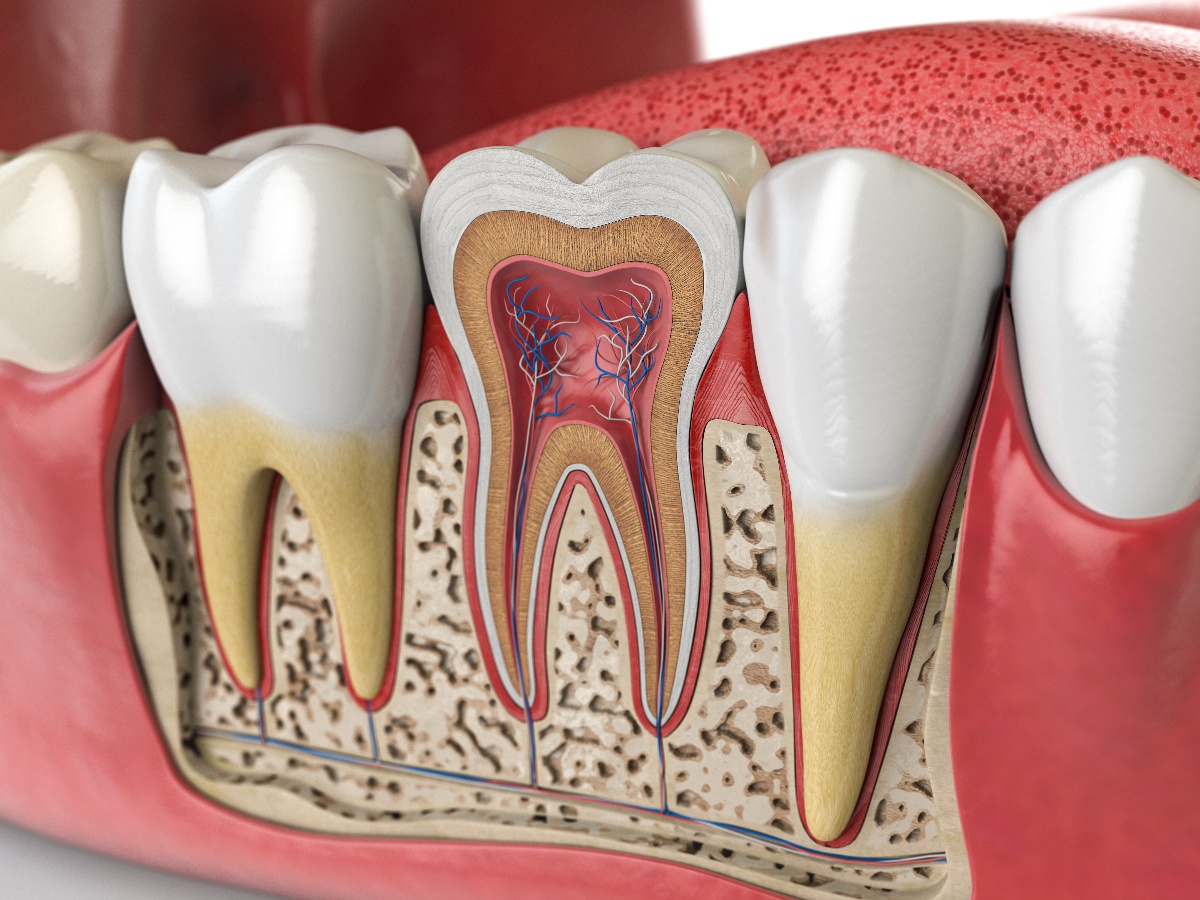When it comes to your health, the connections between different bodily systems often reveal surprising insights. An example is the relatively recent discovery of a connection between your gut microbiome and mental health. You probably would never anticipate that the health of the bacteria in your digestive tract could contribute to your anxiety or depression, and yet this seems to be the case. Another unexpected link is thought to exist between gum disease, a common yet frequently overlooked oral health issue, and atrial fibrillation (AFib), a complex heart condition characterized by irregular heartbeat.
At first glance, you would not expect the health of your gums to be related to the rhythm of your heart. However, emerging research suggests a deep and complex relationship between the two.
Understanding Gum Disease
Gum disease is a common yet potentially serious condition that damages the tissues surrounding and supporting your teeth. It is typically caused by dental plaque that constantly forms on your teeth. Without proper oral hygiene, plaque can harden into tartar, worsening the gum problem. Understanding gum disease's stages and potential outcomes is crucial for oral and overall health.
Stages of Gum Disease
- Gingivitis. You may not be able to detect this initial stage of gum inflammation. Eventually, it causes red, swollen, and bleeding gums. It's usually reversible with good oral hygiene and professional dental care.
- Periodontitis. If this initial gum inflammation is left untreated, it can advance to periodontitis. This more advanced inflammation causes bone loss, periodontal pocket formation, and infection. This stage can lead to tooth mobility and, in severe cases, tooth loss.
Causes and Risk Factors
- The accumulation of dental plaque due to inadequate brushing and flossing is the primary cause of gum disease.
- Risk factors include smoking, diabetes, certain medications, hormonal changes (such as those during pregnancy), and heredity.
Symptoms
- Gum disease causes a range of symptoms depending on the severity of inflammation or infection. These symptoms can include bad breath, red or swollen gums, tender or bleeding gums, painful chewing, and loose or sensitive teeth.
- Advanced periodontitis can cause your gums to recede and can eventually result in tooth loss. Recently, gum inflammation and infection have been associated with an increased risk of some medical conditions, such as Alzheimer’s, heart disease, and diabetes.
What is Atrial Fibrillation?
Atrial fibrillation (AFib) is a heart condition characterized by an irregular and often rapid heart rate. This condition arises from abnormal electrical signals in the heart's upper chambers (atria), leading to an irregular rhythm that is often rapid and out of sync with the lower heart chambers, known as the ventricles. Afib is common, affecting more than five million adults in the United States, and can lead to significant health complications, such as stroke.
Characteristics of Atrial Fibrillation
- Irregular Heartbeats. The primary characteristic of AFib is a rapid and irregular heartbeat.
- Types of AFib. There are several types of AFib, including Paroxysmal (intermittent), Persistent, Long-standing Persistent, and Permanent AFib, each differing in duration and severity.
Causes and Risk Factors
- The exact cause of AFib is often unknown, but several factors increase the risk, including age, heart disease, high blood pressure, thyroid conditions, excessive alcohol use, obesity, and diabetes.
Symptoms
- Some people with AFib experience no symptoms, while others may experience palpitations, shortness of breath, fatigue, dizziness, or chest discomfort.
- AFib episodes can be brief, with symptoms resolving on their own, or may require treatment.
Long-term Effects
- AFib can lead to an increase in the risk of stroke, heart failure, and other heart-related complications.
- It often requires long-term management, including medications, lifestyle changes, and possibly medical procedures.
Oral Health and Heart Health
Most people know that eating a healthy diet and exercising regularly can positively impact their heart health. In recent years, emerging research has uncovered another habit, daily dental plaque removal, that you can implement to decrease your risk of cardiac disease.
The link between oral health and heart health is rooted in the understanding that chronic inflammation, such as that seen in periodontal disease, can have systemic effects, potentially influencing heart conditions like atrial fibrillation (AFib).
Some of the significant findings that research has revealed about the link between gum and heart disease include:
- Chronic Inflammation. Gum disease causes chronic inflammation in the mouth, which can contribute to inflammation in other parts of the body, including the heart.
- Bacterial Spread. Bacteria from diseased gums can enter the bloodstream, potentially leading to heart inflammation and cardiovascular conditions.
- Immune Response. The body's immune response to periodontal infection might influence the development or worsening of heart conditions.
- Complex Relationship. Oral health can impact heart health, and certain heart conditions can also affect oral health, creating a two-way relationship.
- Common Risk Factors. Shared risk factors such as smoking, diabetes, and obesity further link gum disease with heart conditions like AFib.
- Preventive Implications. Good oral hygiene may play a role in reducing the risk of cardiac problems, including AFib.
Evidence Linking Gum Disease and Atrial Fibrillation
Medical researchers have recently become increasingly interested in the potential link between gum disease and atrial fibrillation (AFib). One factor contributing to this is the finding that someone who improves their gum health can reduce their risk of atrial fibrillation.
There are several points of interest to be gleaned from the latest in clinical research on this topic, including:
- Research has shown a correlation between the severity of gum disease and the likelihood of developing AFib. (1, 2, 3, 4)
- A study published in the Journal of Periodontology found a higher incidence of AFib among patients with severe periodontal disease than those with healthy gums.
- A longitudinal study (data collected over an extended time) indicated that individuals with periodontal disease had a significantly increased risk of developing AFib over time, suggesting a potential causal relationship.
- Chronic inflammation from gum disease is believed to contribute to the development of AFib by affecting the heart's electrical system and increasing the risk of arrhythmias.
- The systemic inflammatory response triggered by gum disease can exacerbate existing heart conditions, potentially leading to AFib.
Prevention and Treatment
The mounting evidence linking the health of your gums and the risk of developing or worsening atrial fibrillation has led researchers to suggest several preventive measures to prevent or eliminate gum disease. These include:
- Excellent Oral Hygiene. Regular brushing, flossing, and using mouthwash can significantly reduce your risk of gum disease.
- Regular Dental Check-ups. Professional cleanings and dental examinations help in the early detection and management of gum problems.
- Advanced Treatments. For severe gum disease, treatments may include deep cleaning (scaling and root planing), medications, or periodontal surgical interventions.
Schedule an Appointment
To learn more about how the oral health care professionals at Palmetto Dental Arts can help you prevent gum disease, call us or contact us online.





